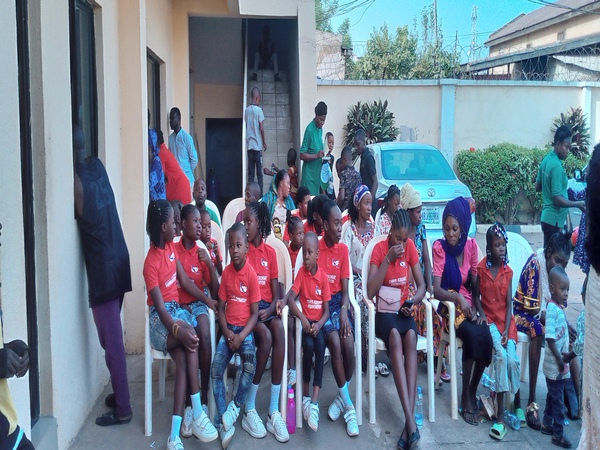Nigeria, a nation steeped in rich cultural heritage and vast diversity, grapples with a myriad of challenges, such as poverty, conflict, and public health crises. These issues have resulted in a considerable number of orphaned and vulnerable children. Orphanages in Nigeria play a vital role in safeguarding these children’s welfare by providing essential care, support, and a sense of belonging. In this blog post, I will delve into the world of orphanages in Nigeria, highlighting firstly, their significance, secondly, the obstacles they encounter, and thirdly, how individuals can make a meaningful contribution to enhancing the lives of these children.
The Importance of Orphanages in Nigeria
In Nigeria, orphanages act as vital sanctuaries for children who have lost their parents for various reasons, including illness, violence, and economic struggles. These facilities not only offer shelter but also essential services such as food, education, and healthcare. Many of these orphanages are operated by non-governmental organizations (NGOs) and religious institutions that often depend on donations and volunteer efforts to keep their services running.
The core mission of these orphanages is to cultivate a nurturing atmosphere where children can thrive, learn, and evolve into responsible and self-sufficient adults. They implement structured routines that encompass educational programs, vocational training, and recreational activities, all designed to promote the physical, emotional, and social development of the children in their care.
Varieties of Orphanages in Nigeria
In Nigeria, orphanages can be classified into several categories based on their management structures and funding sources:
1. Government-operated Orphanages: These facilities are financed and administered by the government, offering essential care and services to children in need. However, they frequently encounter obstacles such as limited funding and insufficient resources.
2. NGO-managed Orphanages: Numerous non-governmental organizations (NGOs) run orphanages throughout Nigeria. These establishments typically enjoy greater operational flexibility, allowing them to provide specialized services that cater specifically to the diverse needs of the children.
3. Faith-based Orphanages: A significant number of orphanages in Nigeria are connected to religious organizations. These institutions often prioritize moral and spiritual education, alongside the provision of traditional care and support.
4. Community-run Orphanages: Some orphanages are initiated by local communities to specifically address the needs of orphaned children within their vicinity. These organizations often depend greatly on the support and participation of the community.
Challenges Encountered by Orphanages in Nigeria
Orphanages in Nigeria play a vital role in providing care and support for vulnerable children, yet they grapple with a multitude of challenges that hinder their effectiveness. Key issues include:
– Insufficient Funding: A significant number of orphanages struggle to secure reliable financial support, which severely impacts their ability to supply basic needs such as food, clothing, and healthcare services.
– Overcrowding: With a notable rise in the number of orphaned children, many orphanages find themselves operating well beyond their intended capacity which results in poor living conditions and insufficient resources for each child.
– Shortage of Trained Professionals: There is often a lack of qualified personnel, including social workers and psychologists, within these facilities, making it difficult to adequately address the complex emotional and psychological needs of the children.
– Social Stigma: Orphaned children frequently experience social stigma, which can harm their self-esteem and complicate their integration into society. This negative perception may also deter families from considering adoption or fostering these vulnerable children.
Ways to Support Orphanages in Nigeria
There are numerous avenues through which individuals and organizations can enhance the well-being of children residing in orphanages across Nigeria:
1. Financial Contributions: Monetary donations can have a profound effect on the functioning of orphanages. These funds can be directed towards acquiring food, clothing, educational resources, and medical supplies.
2. Volunteering: Many orphanages appreciate the dedication of volunteers who can offer their time and expertise. Whether it’s teaching, organizing events, or providing administrative assistance, volunteers play a crucial role in making a lasting impact.
3. Sponsorship Programs: Various organizations implement sponsorship initiatives that enable individuals to support the education and welfare of specific children. This support can open doors to enhanced educational opportunities and vital resources for the children.
4. Advocacy: Raising public awareness about the challenges faced by orphanages in Nigeria is essential. This can help rally community support and motivate others to take action.
5. Collaborations: Businesses and organizations can forge partnerships with orphanages to provide essential resources, training, and ongoing support. Such collaborations can create sustainable improvements in the care and services offered to these children.
Conclusion:
Orphanages in Nigeria play a crucial role in offering care and support to some of the most vulnerable individuals in our society. Despite facing numerous obstacles, the unwavering commitment of staff, volunteers, and supporters can significantly improve the future prospects of orphaned children. By recognizing the important function of these institutions and actively engaging in their efforts, we can enhance the well-being and development of children in Nigeria, giving them the chance to flourish and achieve their goals. In summary, the challenges faced by orphaned children in Nigeria are urgent and call for a united response. By prioritizing the needs of orphanages and the children they serve, we can cultivate a more compassionate and nurturing environment for everyone involved.


Leave a Reply